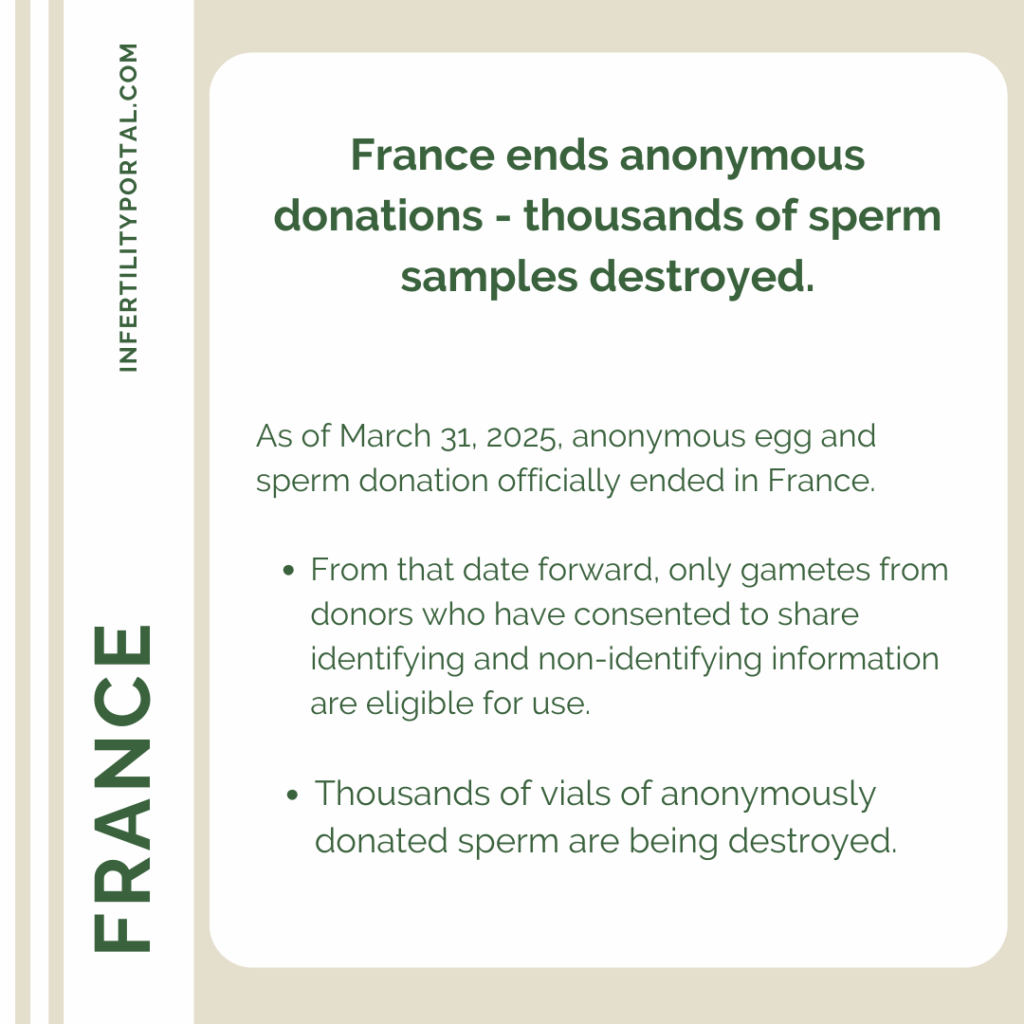France Ends Anonymous Donor Gametes: A Landmark Win for Donor-Conceived Children
On March 31, 2025, a major change in French reproductive law officially took effect: anonymous sperm and egg donations are no longer permitted. This reform, part of the country’s 2021 bioethics overhaul, marks a critical step toward transparency, accountability, and respect for the rights of donor-conceived individuals.
From now on, only donations from individuals who have consented to the release of identifying and non-identifying information can be used in fertility treatments. Once donor-conceived children turn 18, they will be legally entitled to request access to details about their donor’s identity, appearance, health history, profession, and more.
Why the Change?
For decades, France operated under a strict anonymity policy for gamete donations. While it was intended to protect donor privacy and encourage participation, it also created a deep sense of disconnection for many donor-conceived children, individuals with no way of accessing basic information about their biological origins.
The new law shifts that focus. It recognizes the emotional, medical, and psychological importance of allowing donor-conceived people to understand where they come from. As Health Minister Catherine Vautrin stated, this reform establishes “a new fundamental right” for individuals born through assisted reproductive technologies.
The Cost of Progress: Destroying Anonymous Samples
Because donors under the previous legal framework were guaranteed anonymity, their samples can no longer be used. As a result, France is discarding thousands of sperm vials that no longer meet the legal criteria for use.
A Surprising Uptick in Donations
Despite early fears that the end of anonymity would reduce donor participation, the opposite has happened. In 2024 alone, more than 1,000 individuals volunteered to donate sperm, up from just 676 the year before. This signals a cultural shift: donors today are increasingly willing to participate openly, in alignment with ethical and legal expectations.
Thanks to dedicated outreach efforts by fertility professionals and public awareness campaigns, France has built a new donor bank of over 100,000 samples — all from individuals who fully accept the new transparency requirements.
A Step in the Right Direction
France’s decision to retire anonymous donations represents more than just a policy update. It acknowledges that children born through donor conception deserve the right to understand their genetic history, just like anyone else.
As the world watches how this reform plays out, one thing is clear: transparency and ethical progress are no longer optional—they are essential.


